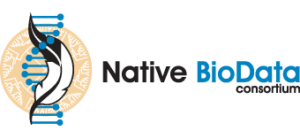The Native BioData Consortium (NativeBio) is a nonprofit research collective led by Indigenous scientists and scholars seeking to use health data to improve and protect the health, welfare and cultures of Indigenous peoples.
Government agencies and scientific researchers have a history of unethical research among Native Americans. In the 1950s, for example, the U.S. Air Force gave capsules filled with radioactive Iodine-131 to Alaska Natives as part of a thyroid function study, putting them at risk of developing thyroid cancer.
 In the early 1990s, an Arizona State University professor took blood samples from the Havasupai Tribe to understand the prevalence of diabetes in that community. Those samples ended up in the hands of researchers in other institutions, who used them for research on schizophrenia, inbreeding and theories about ancient migrations from Asia to North America.
In the early 1990s, an Arizona State University professor took blood samples from the Havasupai Tribe to understand the prevalence of diabetes in that community. Those samples ended up in the hands of researchers in other institutions, who used them for research on schizophrenia, inbreeding and theories about ancient migrations from Asia to North America.
NativeBio, located on the Cheyenne River Sioux Reservation in South Dakota, works to break down mistrust of science while also educating the public about data sovereignty. They bring together Native scholars, scientists, and experts in bioethics, data science, policy, law, and education to improve and protect the health, welfare, and culture of Native peoples. They’re home to the first Native genomic biorepository in North America that is located on sovereign American Indian land and conducts health research for Native peoples by Native scientists.
Leave a Reply